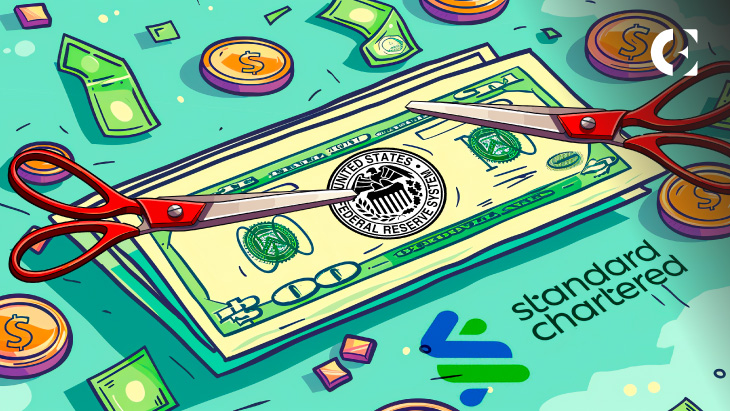- Economist Steve Englander argues against a 50 basis point rate cut, favoring a 25-point reduction due to inflation and unemployment concerns.
- Englander advocates for a measured approach to avoid amplifying economic downturns.
- The upcoming FOMC meeting is pivotal, with Englander stressing the long-term consequences of a wrong call on rate cuts.
Standard Chartered Bank economist Steve Englander has issued a warning against a 50 basis point rate cut by the Federal Reserve, citing persistent inflation and rising unemployment. Given the current economic uncertainties, he recommends a more cautious 25 basis point reduction at the upcoming FOMC meeting.
Inflation and Unemployment: Key Factors in the Fed’s Decision
To add teeth to his analysis, Englander highlighted several key factors. Firstly, inflation remains a major concern, with the Fed’s 2% target still elusive. Recent U.S. economic data suggests that inflation may continue to challenge the Fed’s efforts to control it, making an aggressive rate cut potentially harmful.
Secondly, the rising unemployment rate indicates a possible economic slowdown. Englander points out that the recent increase in job losses suggests a weakening labor market, and a larger rate cut could worsen this trend. He therefore advocates for a moderate rate cut to provide economic stimulus while minimizing the risk of recession.
Read also: Crypto Market Calm Before Fed Rate Decision, 25 Basis Point Cut Expected
Market Awaits Rate Cut as Risks of Wrong Decision Loom
Most importantly, Englander cautioned against the long-term risks tied to making the wrong decision. If the Federal Reserve opts for a 50 basis point cut and later finds it was too aggressive, the economic consequences could be severe. He notes that it’s easier to adjust to a smaller cut than to reverse the effects of an overly aggressive one, which could lead to market instability and further economic downturns.
As the FOMC meeting approaches, the market anticipates some form of rate cut. The recent CME Group’s FedWatch tool shows an 87% probability of a 25 basis point cut, aligning with Englander’s perspective. However, with ongoing debates about the size and timing of the cut, the Fed’s decision remains crucial for the future direction of the U.S. economy.
In short, Englander’s analysis suggests caution against a potentially risky 50 basis point rate cut. He urges the Fed to prioritize economic stability over bold moves, advocating for a 25 basis point rate reduction.
Disclaimer: The information presented in this article is for informational and educational purposes only. The article does not constitute financial advice or advice of any kind. Coin Edition is not responsible for any losses incurred as a result of the utilization of content, products, or services mentioned. Readers are advised to exercise caution before taking any action related to the company.







